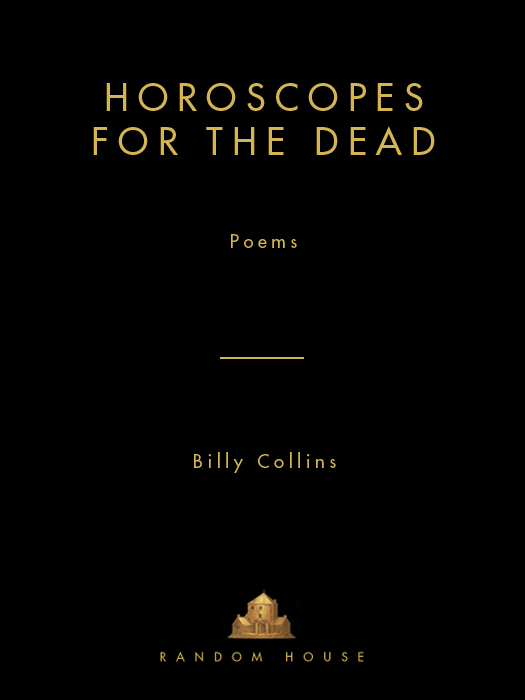
Horoscopes for the Dead
Poems
کتاب های مرتبط
- اطلاعات
- نقد و بررسی
- دیدگاه کاربران
نقد و بررسی

November 15, 2010
The 1990s belonged to Billy Collins in the same way that the 1980s belonged to Robert Fulghum (All I Really Need to Know I Learned in Kindergarten). Collins's gently ironic, gently elegiac work—the mirror image of, say, Jonathan Franzen's suburban delvings—has slowly constructed a pitch-perfect purgatory, and this death-themed ninth collection seems to want to make it as literal as possible: it opens as the speaker stands "before the joined grave of my parents" and asks, "What do you think of my new glasses?" In a poem titled "Hell," the speaker has "a feeling that is much worse/ than shopping for a mattress in a mall,// of greater duration without question,/ and there is no random pitchforking here,/ no licking flames to fear,/ only this cavernous store with its maze of bedding." That this feeling is never quite articulated over the course of 50-odd poems is not to its detriment: despite the prosaic settings and everyday language, Collins is after the big questions: of life, death, and how to live. But the world is not of his making, and his is a temperament oddly suited to a world where "the correct answer" to questions like why the stars appear as they do, strike "not like a bolt of lightning/ but more like a heavy bolt of cloth."

Starred review from January 1, 2011
In his ninth book of poems (after Ballistics), Collins recalls a boyhood passion for collecting: "lantern, spyglass, tomahawk...in the order you would need them in," a sweet beginning with ominous implications. And there is a sharp edge to his fabrications in this volume, which begins with a verbal prank at his parents' grave, ends with the last poem he will ever write, and includes a catalog of his unborn children. His Florida is not Paris; his friend does not have cancer, nor is she human; and the dead don't do anything that appears here in their absurd, generic horoscopes (nor would they have even when alive). In the empty lawn chairs, "no one is resting a glass or placing a book facedown," and the most delightful companions are the cemetery dead. As if feeling naughty, the poet lounges poolside and regards a floating rubber version of himself: "a cool ducky, nonchalant/ little dude on permanent vacation." Ultimately, these absorbing games can't deny the fundamental calamity: grief seeps between the cracks. VERDICT Witty bleakness from a former poet laureate and one of the country's most popular poets.--Ellen Kaufman, Baruch Coll., New York
Copyright 2011 Library Journal, LLC Used with permission.

February 15, 2011
Collins writes of time and death with humor and whirligig images and wordplay so unexpected and delectable, reading his poetry is like watching a magician transform ordinary objectsa coin, a cardinto something breathtaking out of thin air. Collins likes to focus on small, unobtrusive beings like a mouse or a squirrel and informs us that he is the tortoise, not the hare. He steals an hour to walk up a hill and sit on a rock the size of a car, which he then imagines once moved along / in the monstrous glacial traffic of the ice age. The poet loves his dogs long smile, and thinks of Dante in a cavernous mattress store. In this piquant collections hilarious and sweet title poem, Collins riffs on newspaper horoscopes and bemused memories of his beloved dead. A hangover inspires misanthropy, while everyday heartbreaks lead to droll confessions. Including thoughts on his true vocation, which is keeping an eye on things / whether they existed or not, / recumbent under the random stars. Collins rules as a charming master of mischievous wisdom.(Reprinted with permission of Booklist, copyright 2011, American Library Association.)

























دیدگاه کاربران